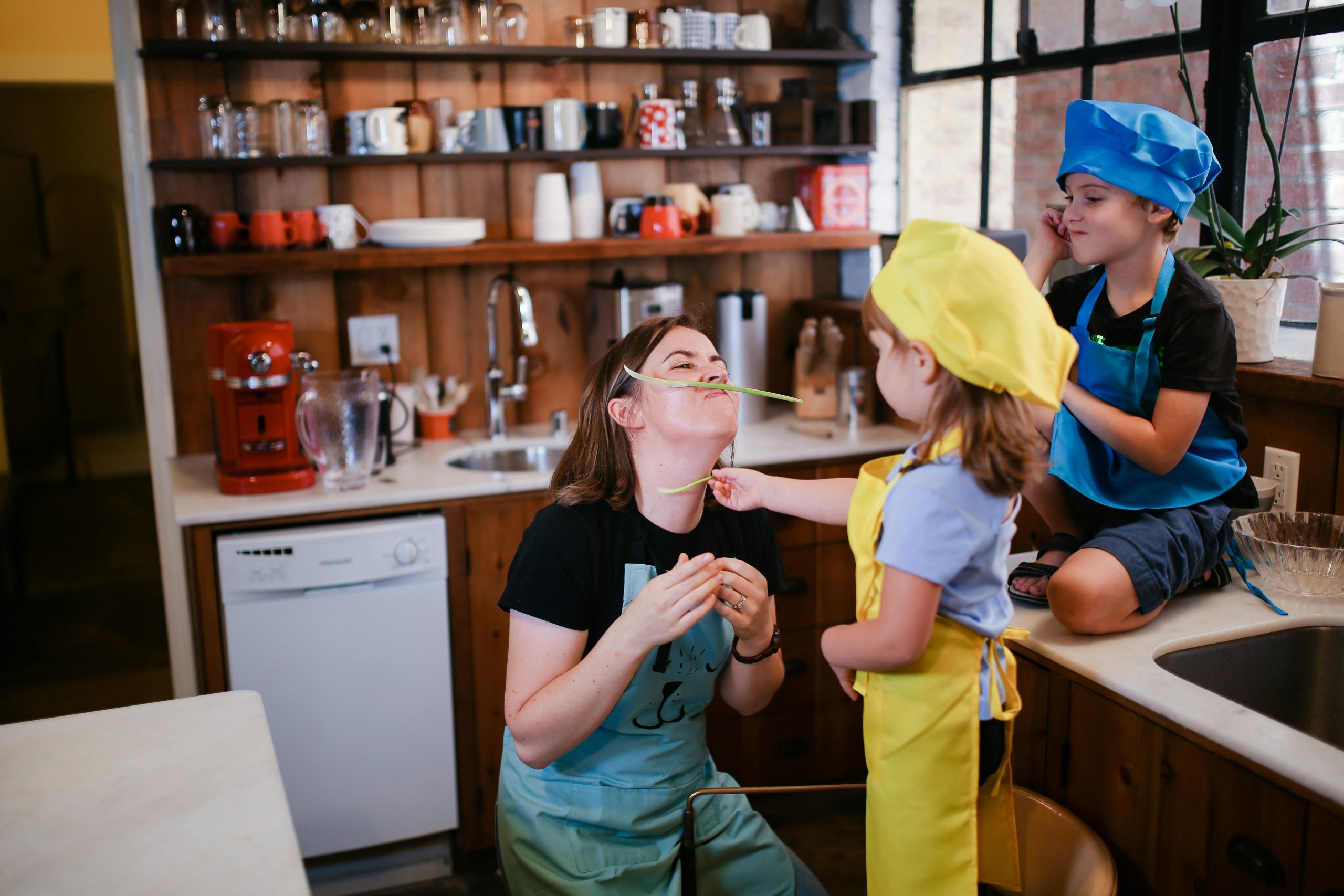Maybe we might have a complicated relationship with our parents, maybe things have been a little rough lately and we need someone who knows us well to talk to us and help us find a solution that that “someone” might not know us that well and that much-needed trust is not built yet, or maybe we need some tips on how to foster a healthy and positive relationship with our parents.
 As a teenager, I often hears stories about how teenagers are struggling with communication with their parents and how their parents are forcing unnecessary pressure on them. And, from the parents’ perspective, there’s an unsettling number of people talking about how they used to have a great relationship when their child was young, but as soon as the adolescent years came around, it’s as if their child flipped a switch and became someone they no longer recognize. I believe that this is an issue that should be addressed with more seriousness and that a healthy and trustworthy relationship should be formed between us and our parents.
As a teenager, I often hears stories about how teenagers are struggling with communication with their parents and how their parents are forcing unnecessary pressure on them. And, from the parents’ perspective, there’s an unsettling number of people talking about how they used to have a great relationship when their child was young, but as soon as the adolescent years came around, it’s as if their child flipped a switch and became someone they no longer recognize. I believe that this is an issue that should be addressed with more seriousness and that a healthy and trustworthy relationship should be formed between us and our parents.
After some thought and consideration, I’ve come up with these two tips for what I think parents and children can do to foster an open and healthy relationship.
Talk openly:

Try to be open about your genuine thoughts, whether you are a parent or a child. If either side hides one’s authentic thoughts, the pressure and anxiety of either side will lead to a disingenuous relationship.
It could be pressuring and even cringey to say one’s genuine thoughts at first, but once the first step is taken, it wouldn’t be hard anymore. Especially in a child’s adolescence and teenage years, communication with parents can be hard, but when the parent is willing to ask, listen, and respond to the child without judgment and a pessimistic point of view on the child’s future and the child is willing to tell the parent their genuine thoughts, the positive relationship will start to form. Judgment and negative wording used in these talks will highly influence the attitude and future actions of both sides.
From personal experience, communicating openly with my mother helped us through a phase of awkwardness due to our opposing perspectives on my body image. For example, my mom stood firm that I had to lose weight and that the body shape that I had previously was not acceptable, however, I calmly told her that I wanted to stay the way I was as my body was not causing any trouble to my health and that I felt confident the way I was. We reached a consensus that if my body was not causing any trouble in my mental or physical health, she would not be allowed to force me to go on a diet and lose weight. This helped me relieve the stress that I had of hearing someone around me constantly forcing me to change myself. Thus, open communication can definitely help create a positive atmosphere for both sides.
Spend QUALITY time together (nurturing trust and emotional connection):
 An important step to fostering a positive and sustainable relationship is building trust and emotional connection. When the child starts to trust their parent, they will not feel uncomfortable telling the parent their genuine thoughts and emotions. The parent would also start trusting the child and give genuine feedback and not force judgment onto the child as both sides now know each other truthfully.
An important step to fostering a positive and sustainable relationship is building trust and emotional connection. When the child starts to trust their parent, they will not feel uncomfortable telling the parent their genuine thoughts and emotions. The parent would also start trusting the child and give genuine feedback and not force judgment onto the child as both sides now know each other truthfully.
Quality time can be spent in ways such as going on walks together, bonding over good food, playing board games, or simply talking and having truthful conversations. A good way for both sides to know each other is perhaps playing the game “two truths and a lie”. The game allows the other player to guess the lie that has been written, which is a fun way of letting perhaps things that are uncomfortable to directly get conveyed to the other side. This way, both sides will know that trust is built, and when it is time to exchange genuine thoughts, the communication will be much more objective and constructive for a sustainable and healthy relationship overall.
However, we have to differentiate between quality time spent and passive time spent. For example, you could be watching TV with your parent but still not feel the bond getting strong afterward since you’re both passively being entertained by the TV instead of actively engaging with each other. The key here is to allow both sides to know each other better and allow for stronger connections to form.
 Coco, a grade 9 student in a Chinese public school here in Beijing, had always told me about how her mom is constantly on her about not getting full marks on a test, and after I suggested to her that having a conversation with her mom about her genuine thoughts on her academic performance and her realistic capabilities, she told me that “telling my mom that she is pressuring me way too much on my academics helped her know that I may not be one of those ‘elite’ students who can get full marks all the time. It helped us find more realistic goals for me and ways to steadily improve my skills.”
Coco, a grade 9 student in a Chinese public school here in Beijing, had always told me about how her mom is constantly on her about not getting full marks on a test, and after I suggested to her that having a conversation with her mom about her genuine thoughts on her academic performance and her realistic capabilities, she told me that “telling my mom that she is pressuring me way too much on my academics helped her know that I may not be one of those ‘elite’ students who can get full marks all the time. It helped us find more realistic goals for me and ways to steadily improve my skills.”
Maybe now you get an idea of how to spend quality time together, but what are some activities that could be done? If you live anywhere near Chaoyang Park, you are in luck! There are facilities for parent-child activities everywhere in the park, and even full-on obstacle courses way up in the trees at Moncy Club where you can test out your trust for each other, your own limits in the face of danger, and just how brave each member of your family actually is.

It’s located on the park’s west side and does require a separate entry fee of about RMB 320. Inside, you’ll find plenty of climbing walls, suspension bridges, and zip lines. They also have a laser tag arena that’s open to kids and adults. If you’ve got a big group, you can book the entire place out for RMB 150 per person for two and a half hours. If you want to join an existing game, the price is RMB 160 for two hours.
Find it:
Moncy Club 萌溪亲子营地乐园(朝阳公园店
朝阳公园西三门进入后右转步行200米融合广场东侧 After entering the West Third Gate of Chaoyang Park, turn right and walk 200 meters to the east side of the Fusion Plaza
Tel: 15010671650 or 13811242257
Open Hours: 9:00-5:30pm
Check out this article to find out more about what you can do as a family inside Chaoyang Park.
The construction of a good parent-child relationship requires consistent action, trust, and genuine communication, and it takes a lot of time for a sustainable relationship to form. So if there doesn’t seem like much progress going on, try these tips and remember that!
Images: Margaret Yang, Vivienne Tseng-Rush




